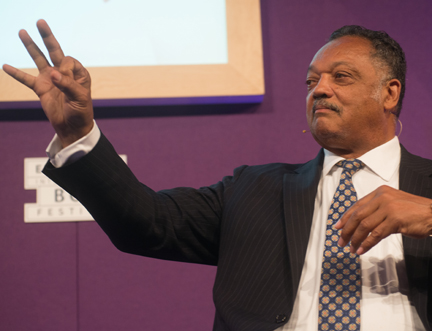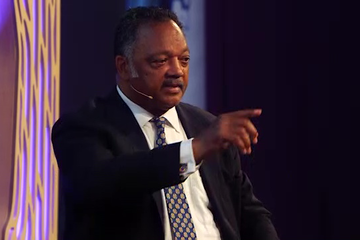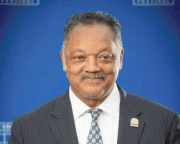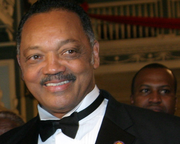More articles Sunday 23 August 2015 4:50pm
Civil rights campaigner Jesse Jackson speaks at the Book Festival

Yesterday, civil rights campaigner Jesse Jackson told his Book Festival audience that the advance of science and technology means that nations are “no longer foreigners” but that they now had “the bigger challenge to live together.”
Addressing a packed audience, ahead of receiving an honorary doctorate from the University of Edinburgh at the Book Festival, he made the call for unity and equality. “There is this wave of hope, there is an undercurrent of despair,” he said. “There is the need for a tug of war for the soul of our country and soul of the Western world. If you turn the rope loose, you enable those who are the cynics to take over.
“We’re no longer foreigners. Science and social media has dwarfed distance, speed and time. There are no more foreigners. They are no longer migrants, they’re neighbours. We’ve learned to survive apart, we now have the bigger challenge to live together.”
Highlighting concerns about immigration on both sides of the Atlantic, Jesse said that it was about “those who have more than they need and those who don’t have enough.” He added: “There’s a gap with those who live in a surplus culture and those live in the deficit culture. And as long as one side of the river is parched, and the other side is green, people will come to where the grass is greener. The answer is not to contain them or to ban them, but to develop them. After all who are they, our neighbours, our friends, with whom we must learn live together and not die apart?”
He said in the US, however, there was still a problem of racism in the south, and while they had learned share space and work together, blacks and whites had “not quite learned to live and vote together yet”, adding “that’s another step that’s yet to be taken.”
Asked about Barack Obama’s achievements, Jesse said that despite what he described as a “strong headwind” of opposition from right-wing Republican politicians, during his presidency he had managed to help re-grow the economy, introduce affordable health care, withdrawn troops from Iraq, reconnected the US with Cuba and reached a deal with Iran over its nuclear programme.
Jesse Jackson, who has been pivotal in the US civil rights movement since the mid-1960s and stood twice for the Democratic presidential candidacy during the 1980s, also told our audience that he had not decided whether or not he will back Hillary Clinton’s campaign to become the party’s presidential candidate. He said that while Mrs Clinton had an admirable track record in helping people, he was looking for the candidate with the agenda he saw as doing the most to help disadvantaged people. “She has the right stuff to win, but my interests are that we need an urban reconstruction policy,” he said. “I want to see who’s going to deal with that interest.”
Look, Listen & Read
- 2026 Festival:
- 15-30 August
Latest News
 Major new partnership with Celtic Connections
Major new partnership with Celtic Connections






